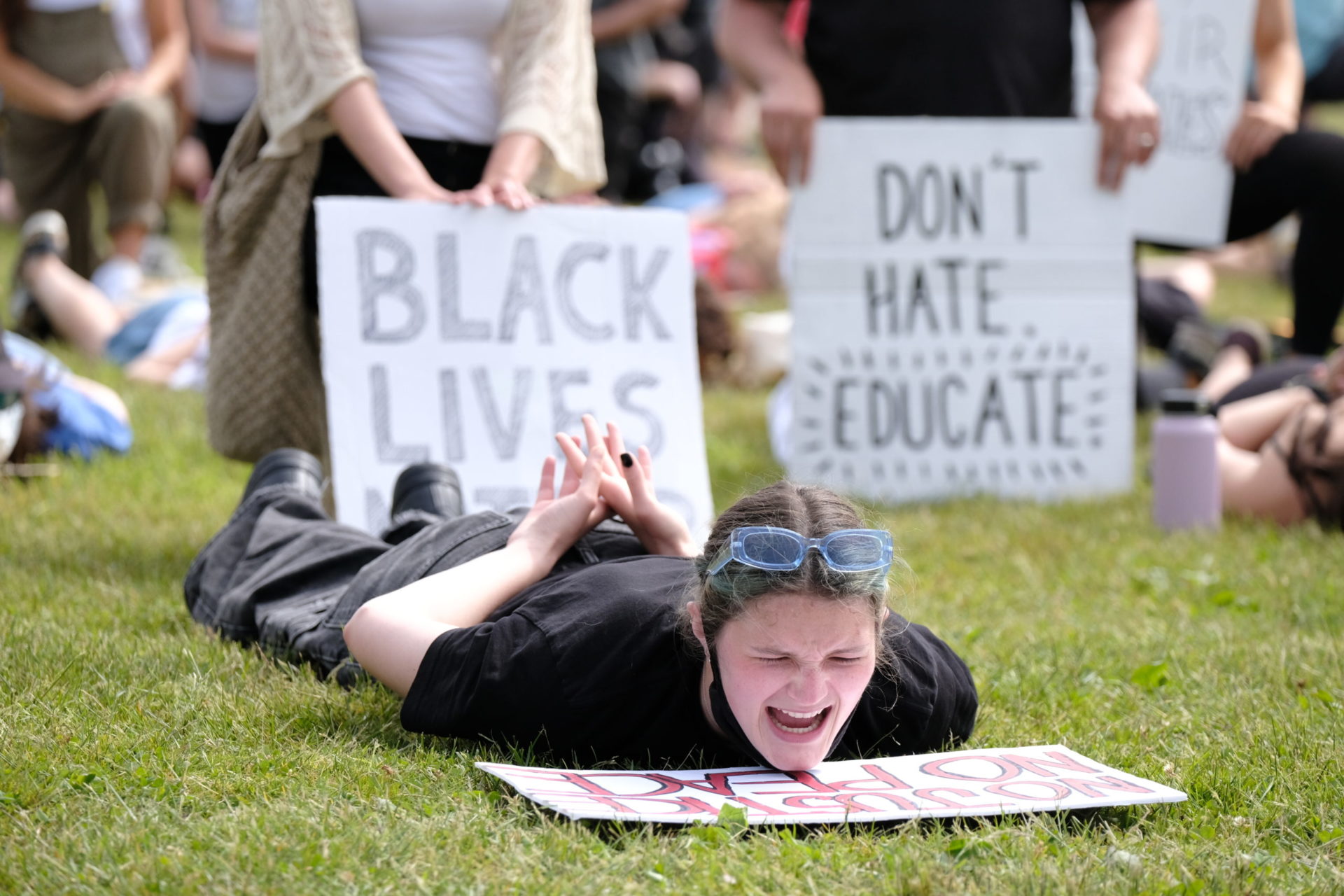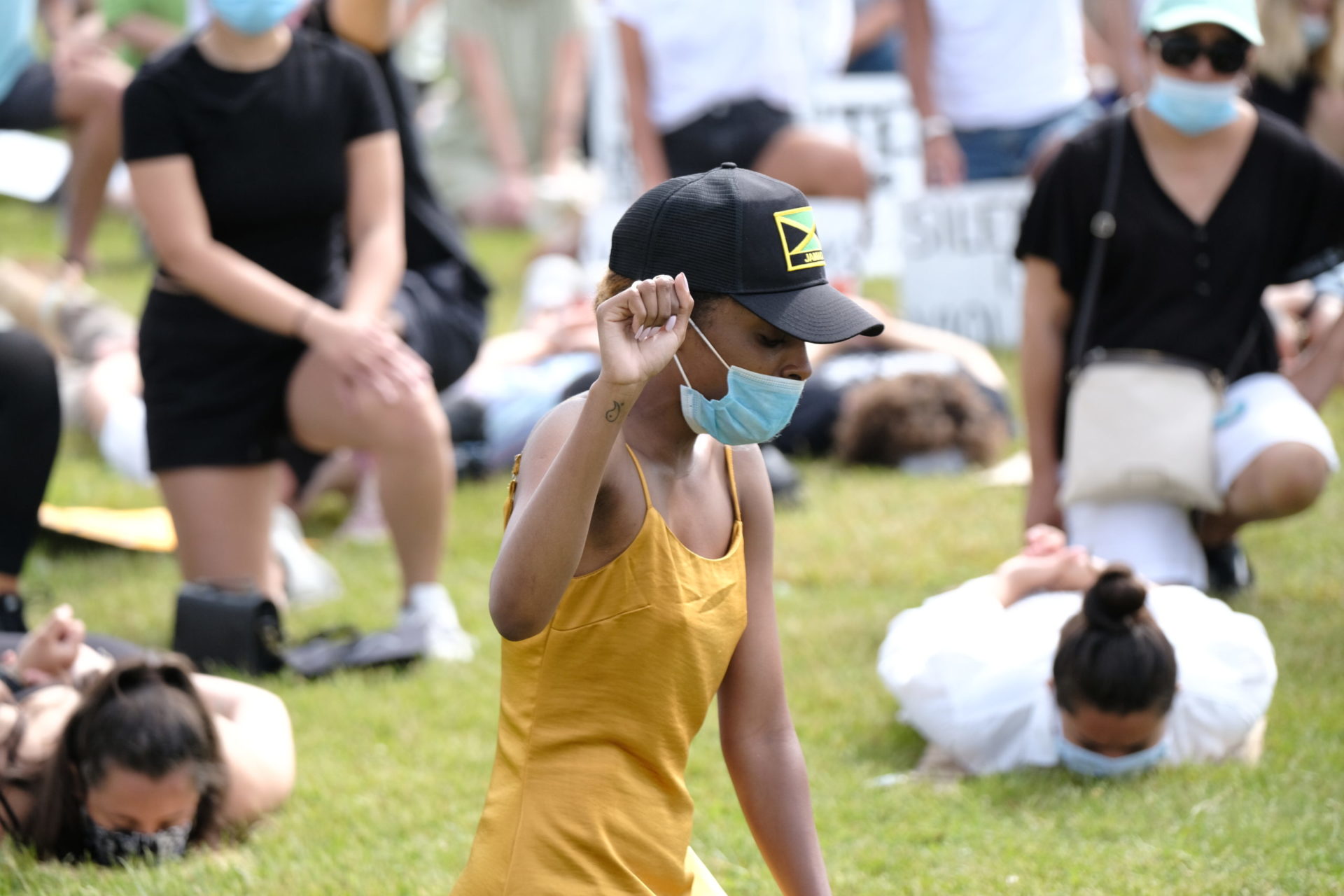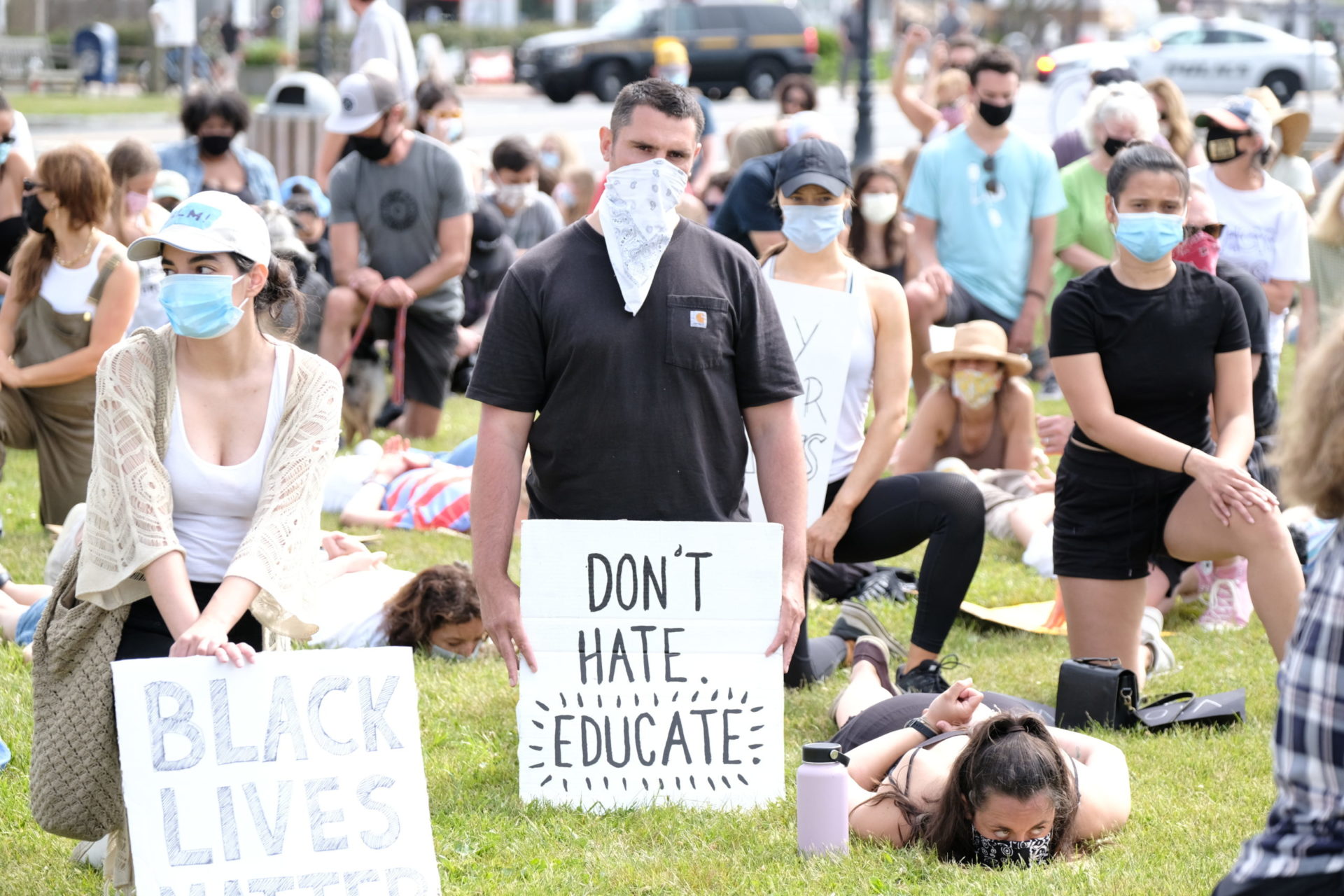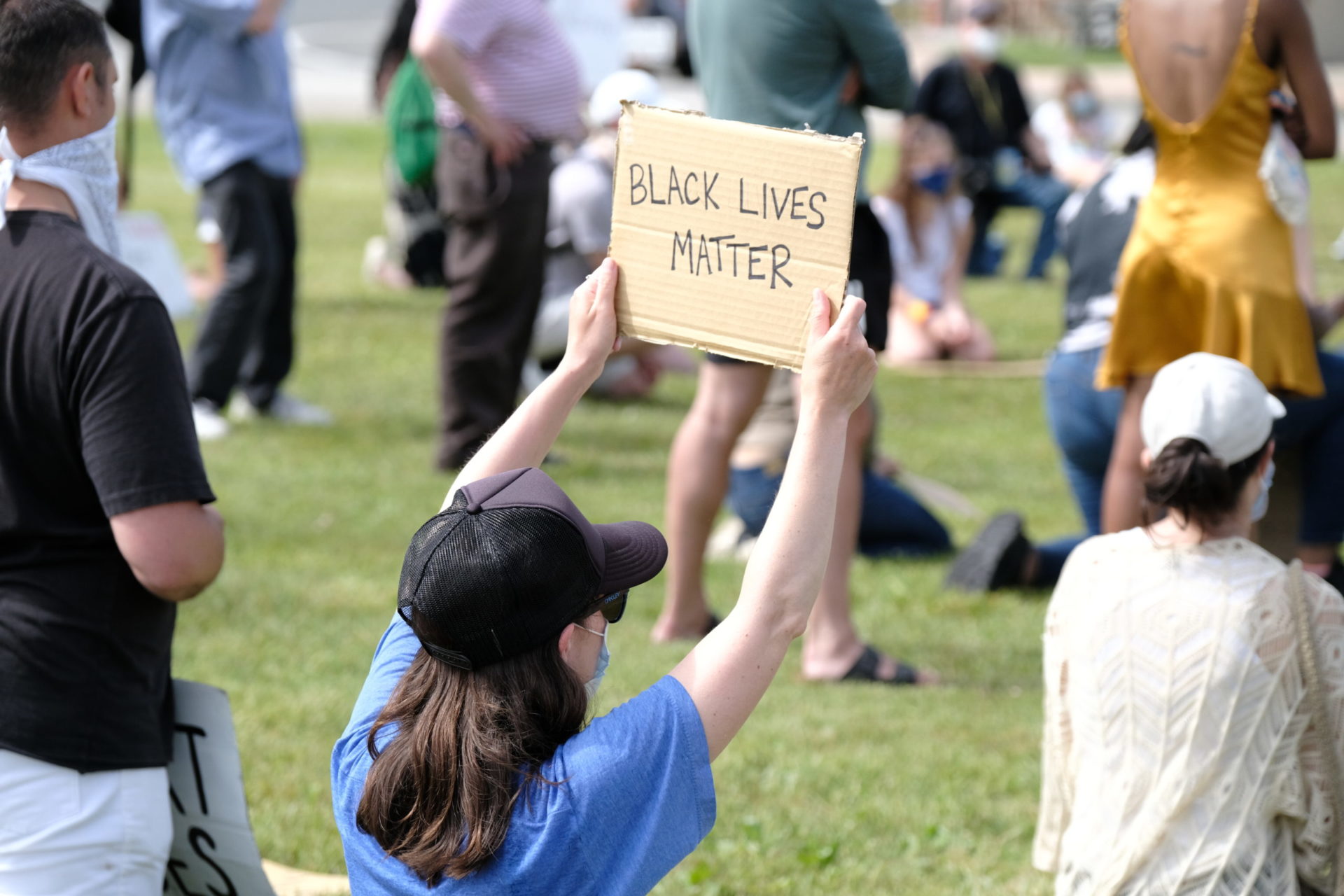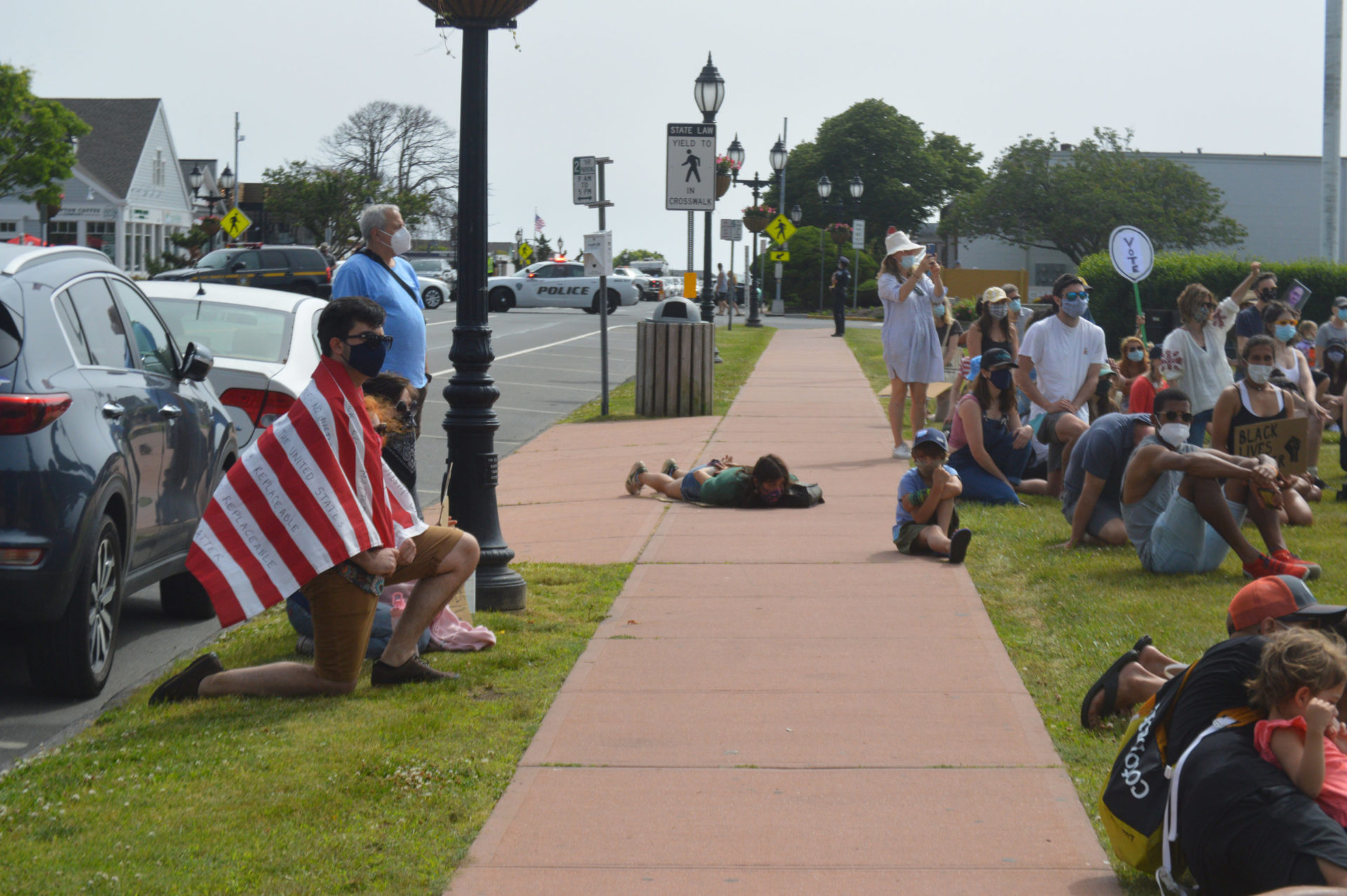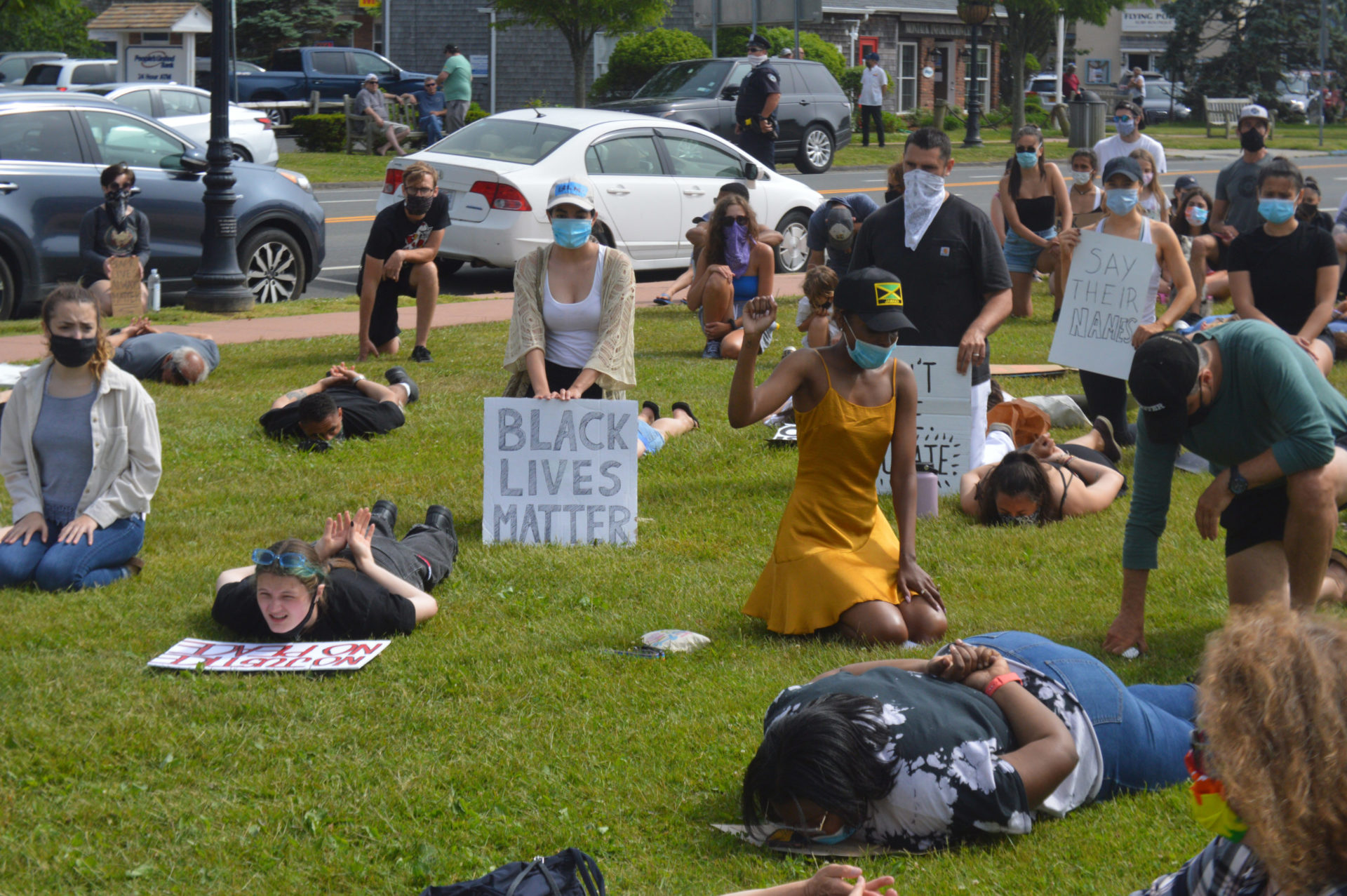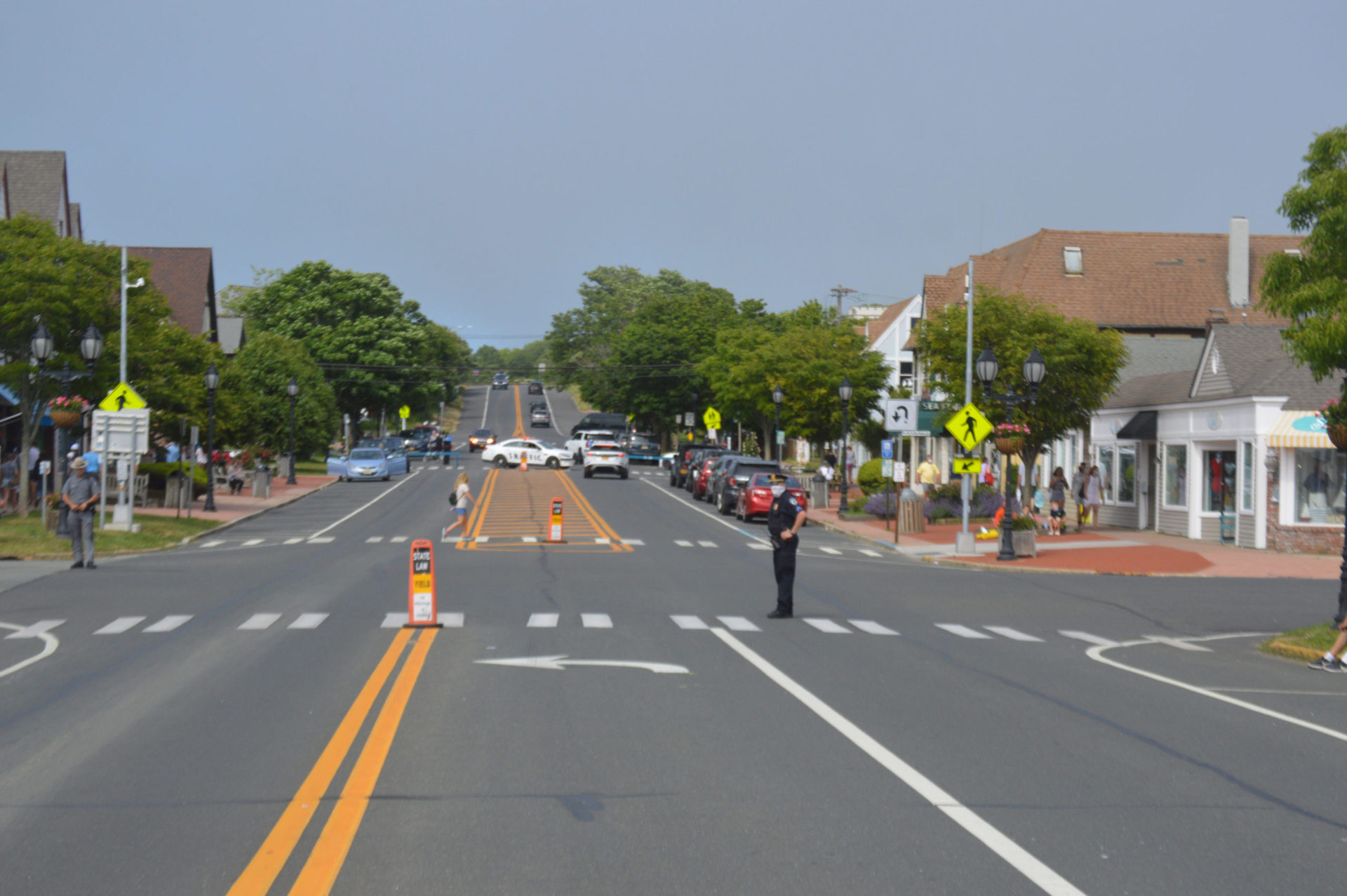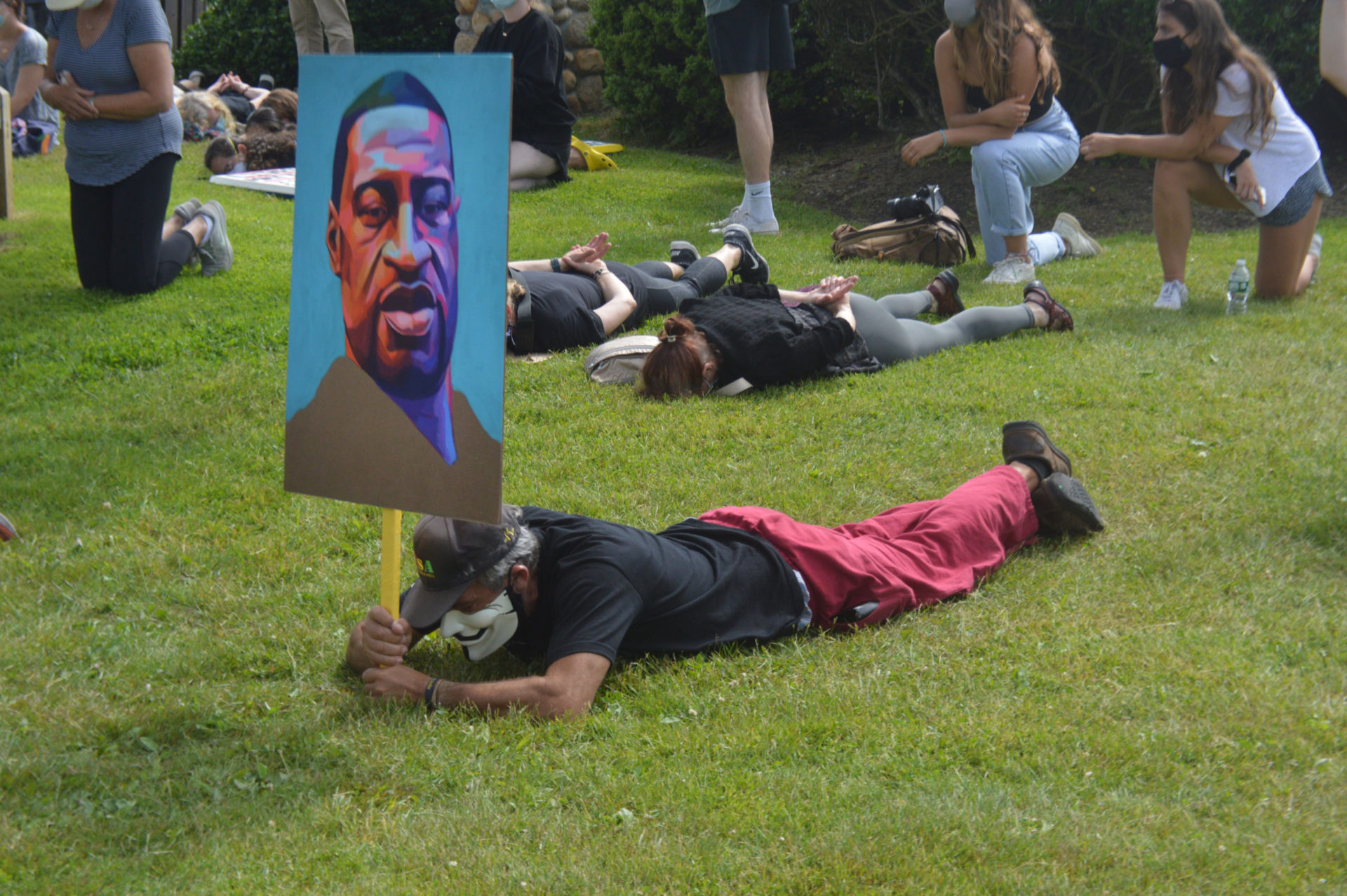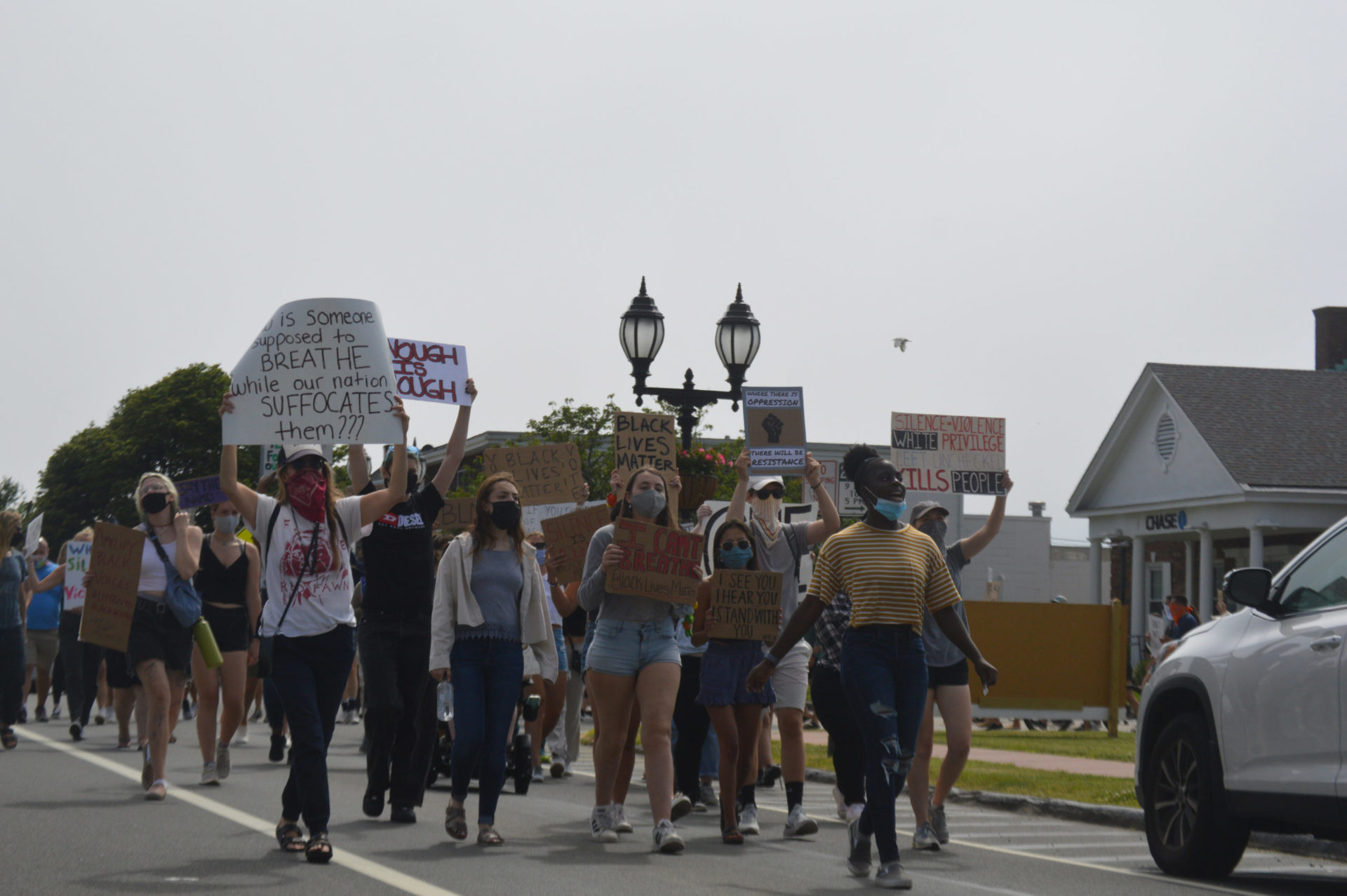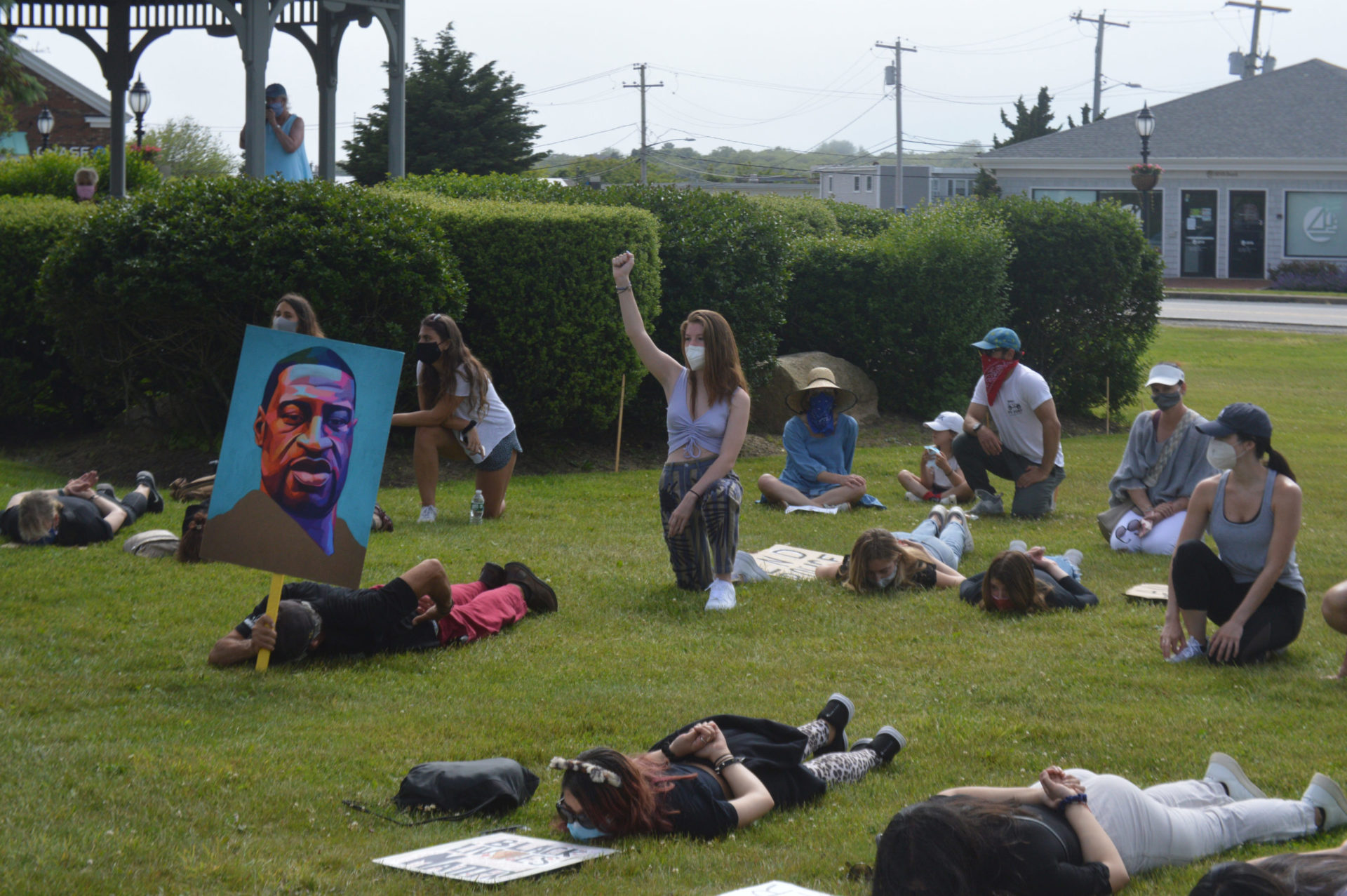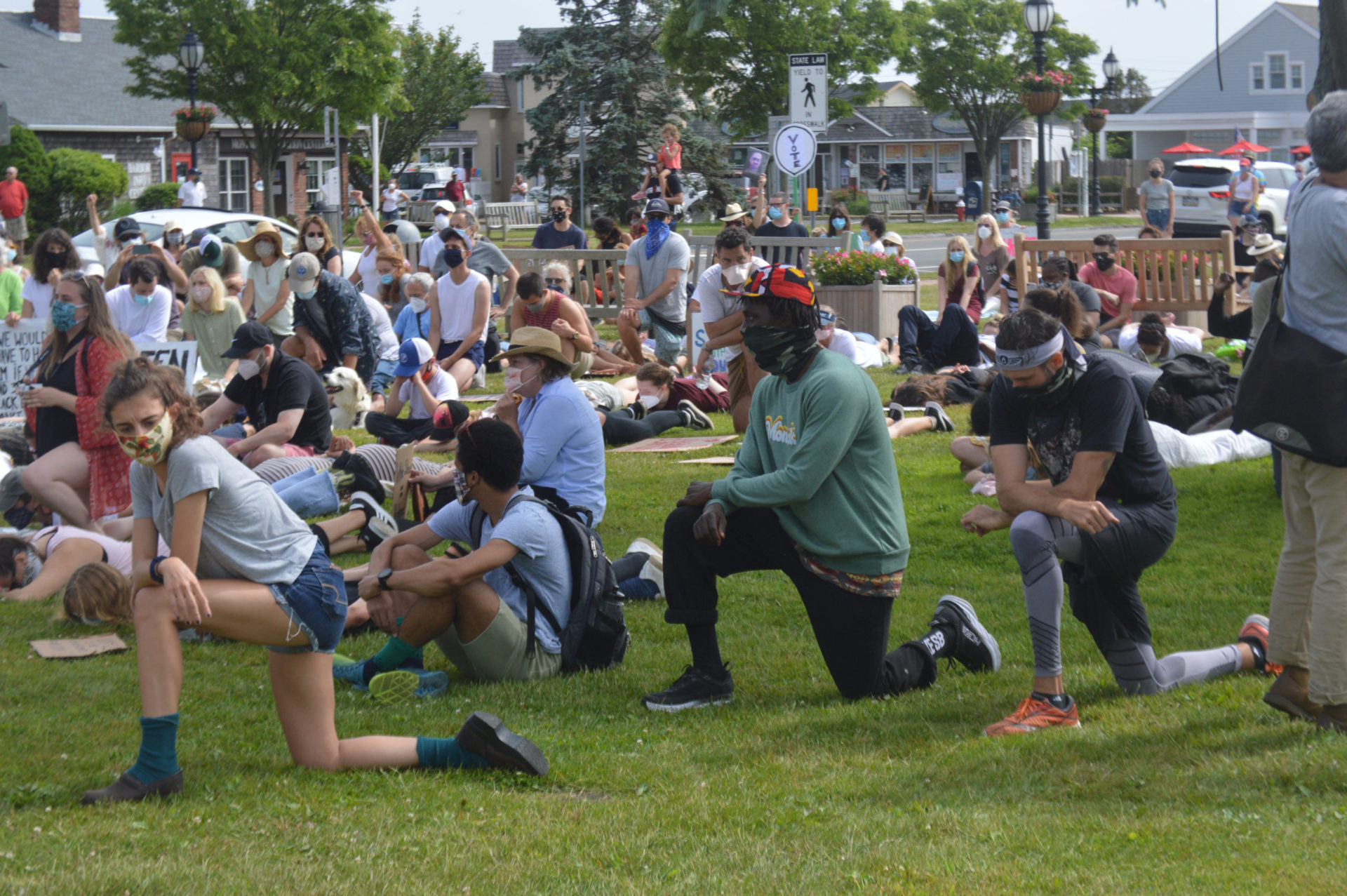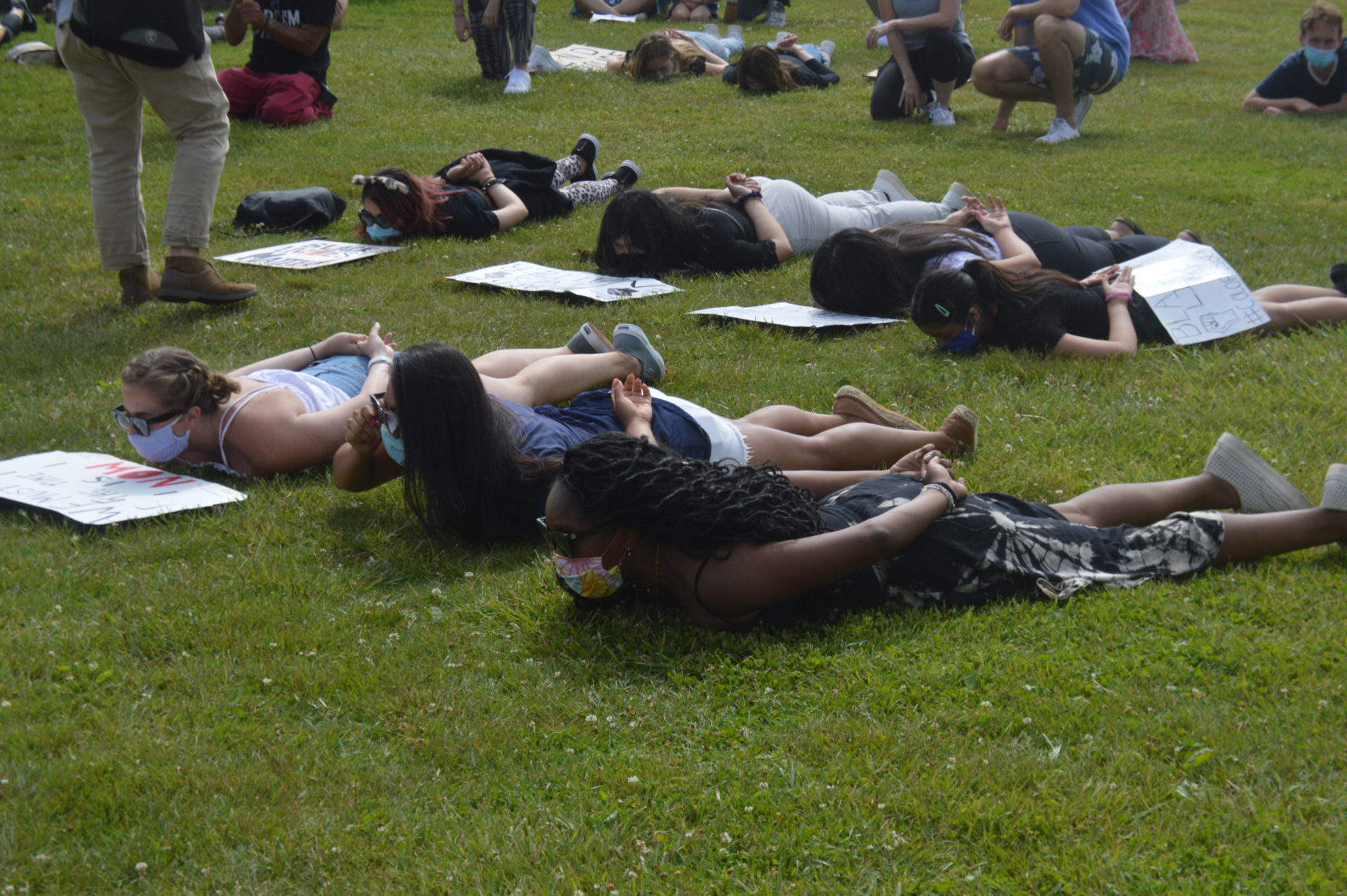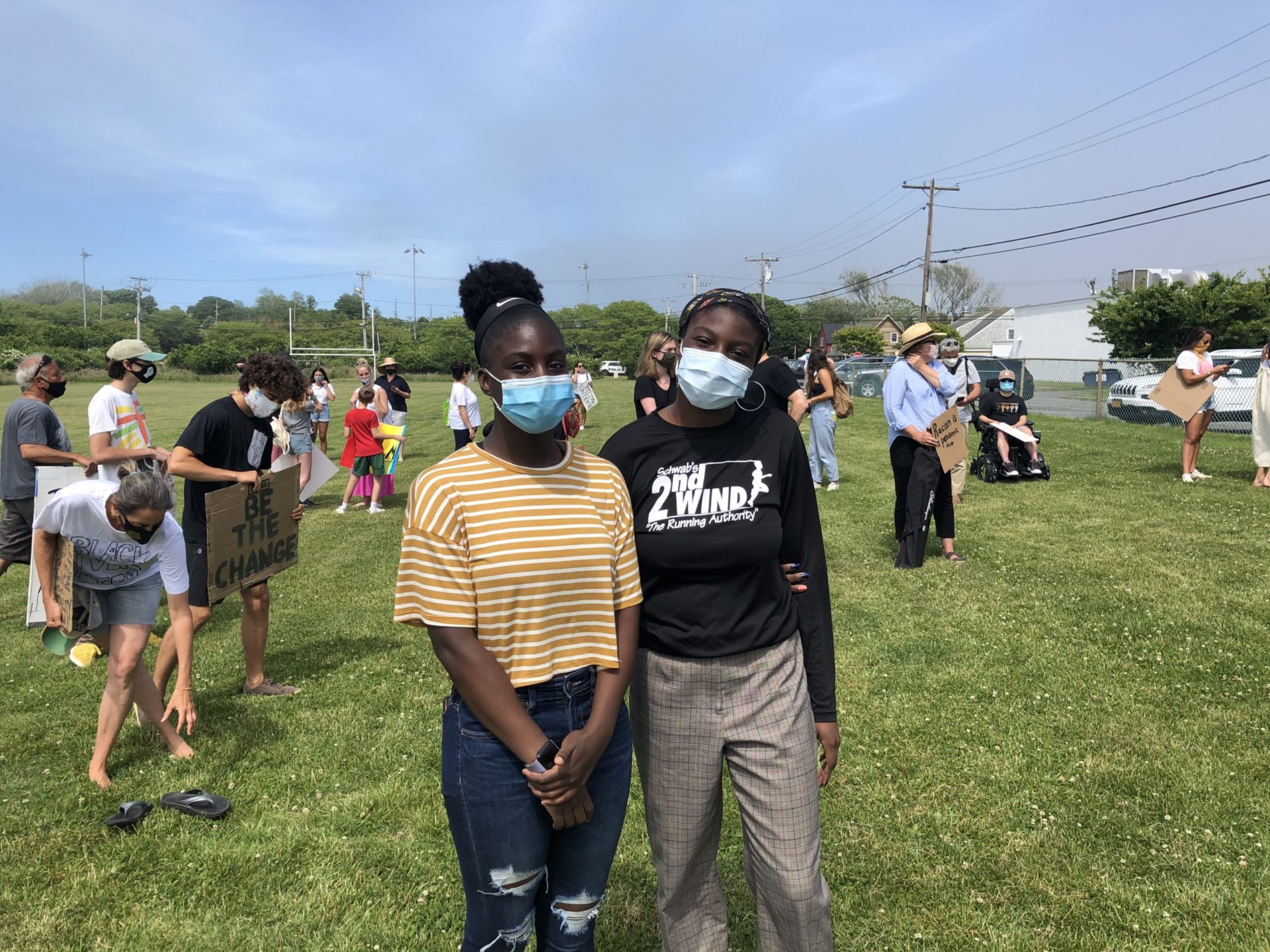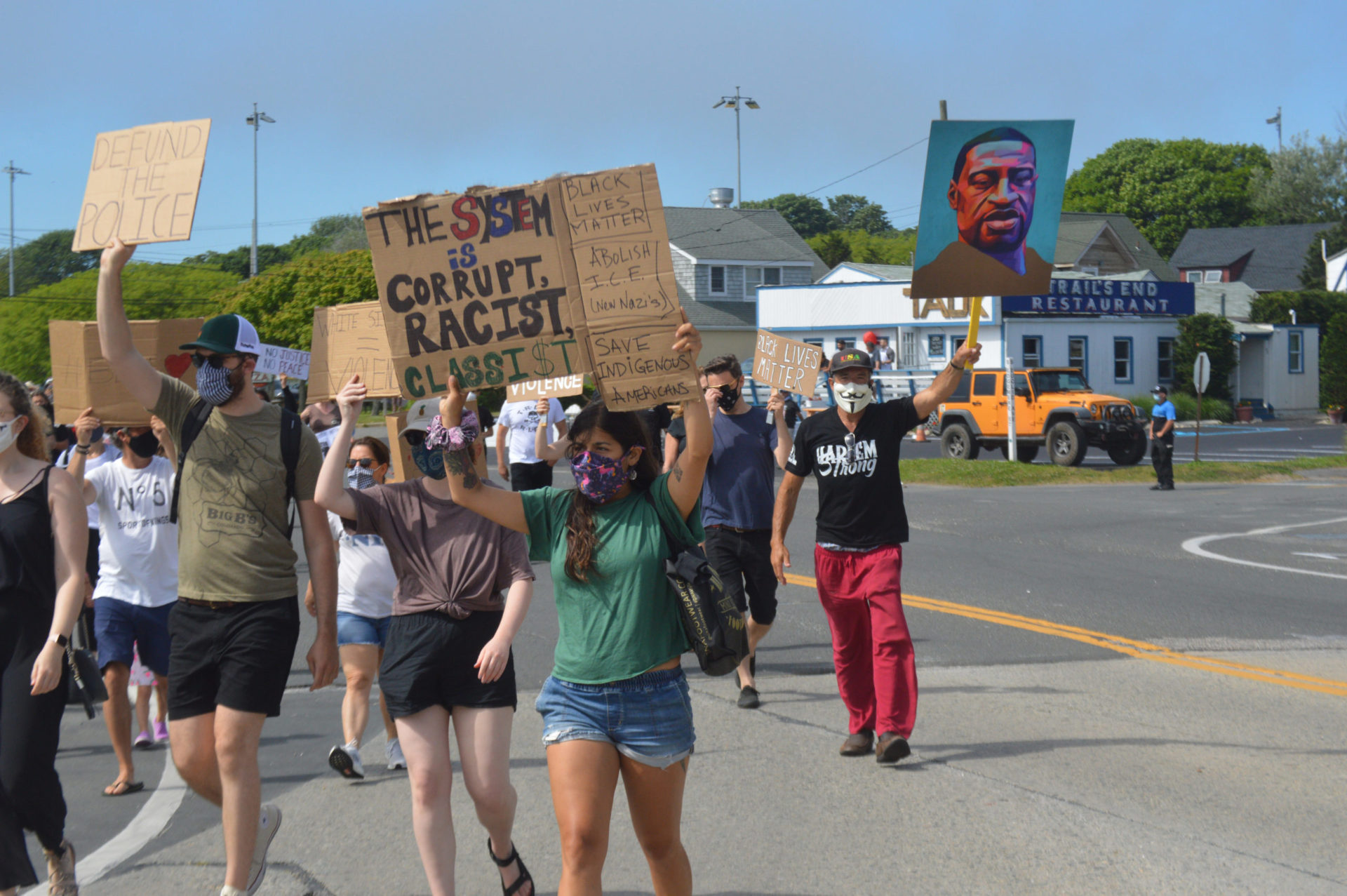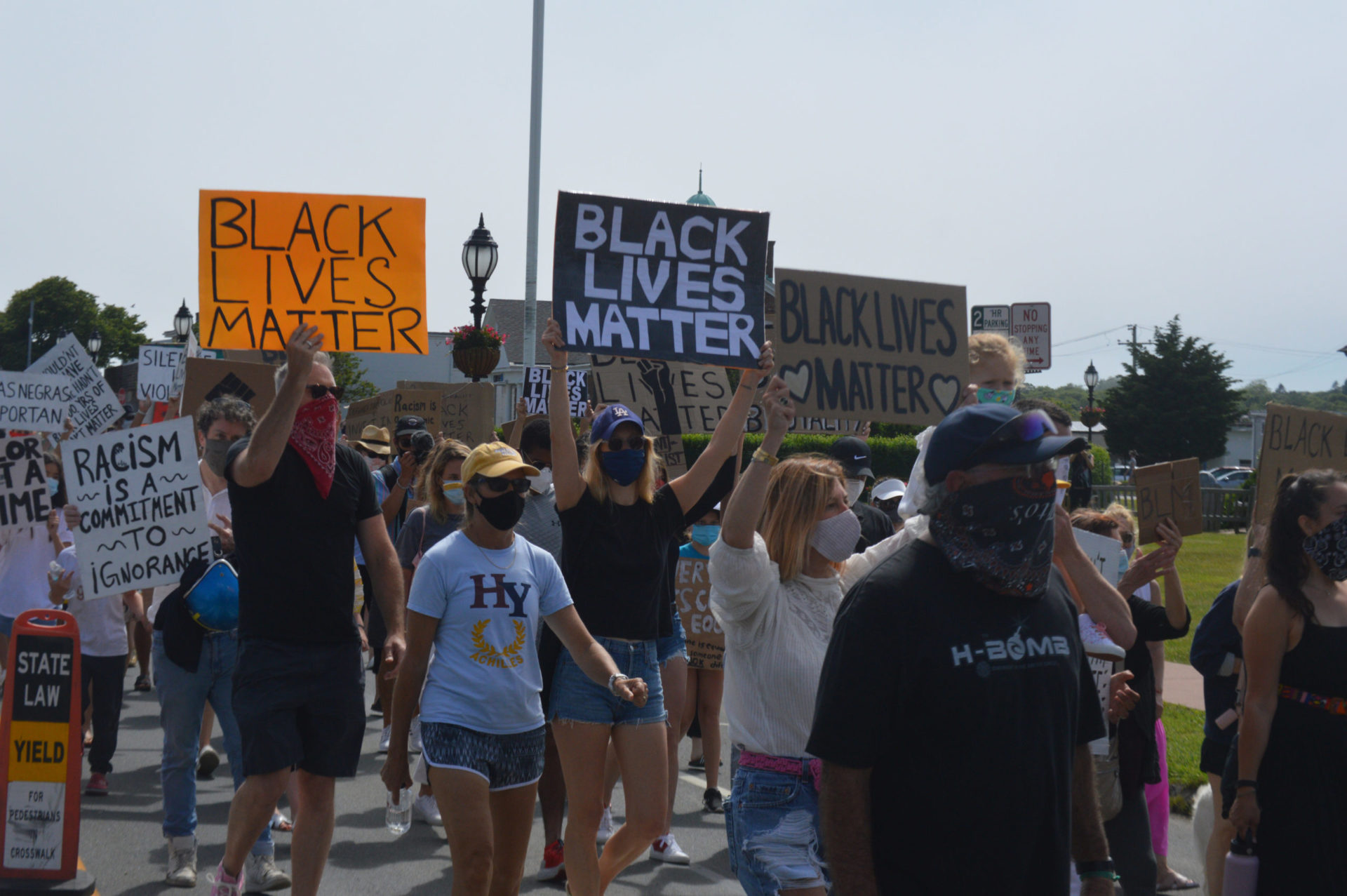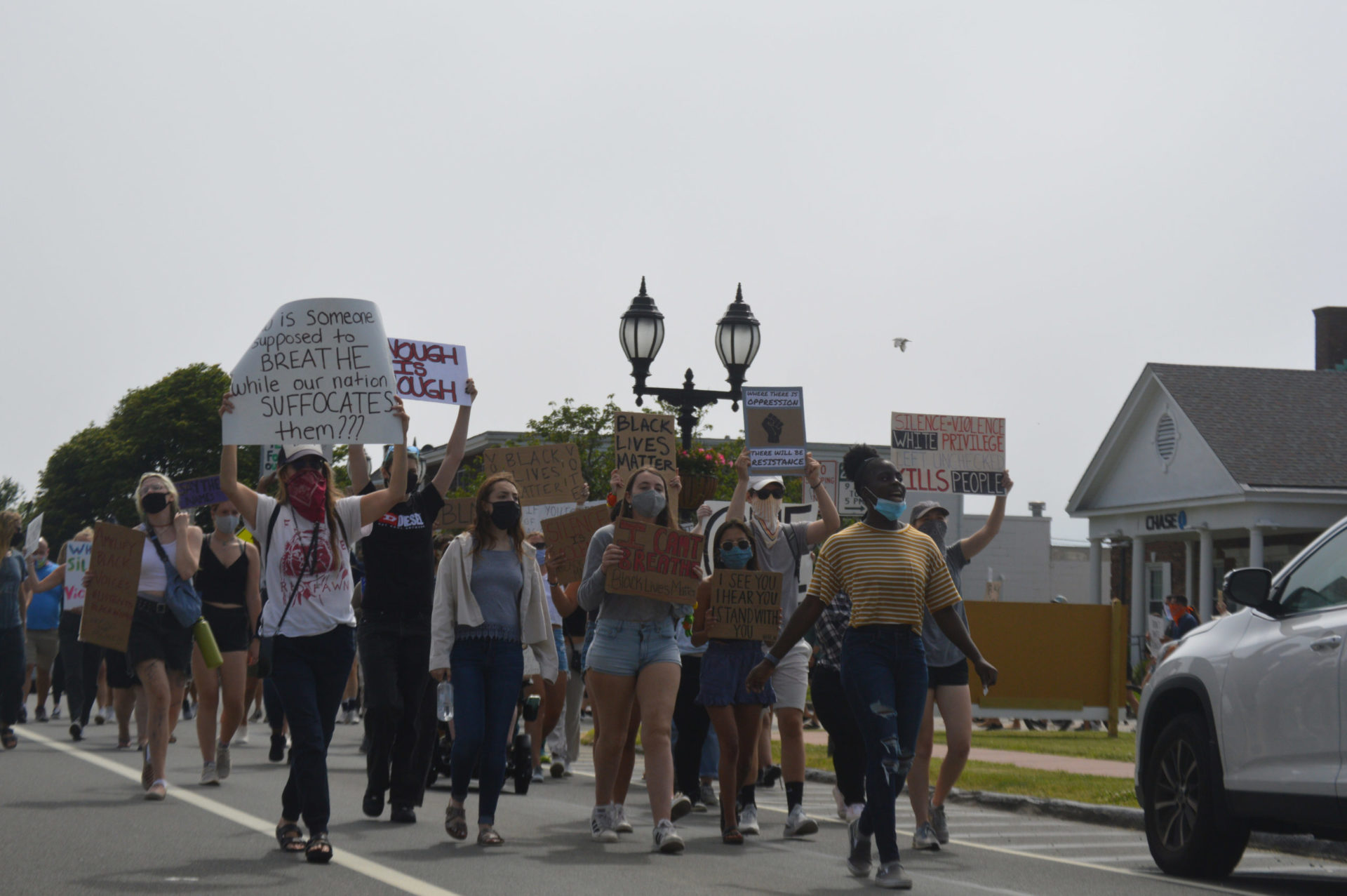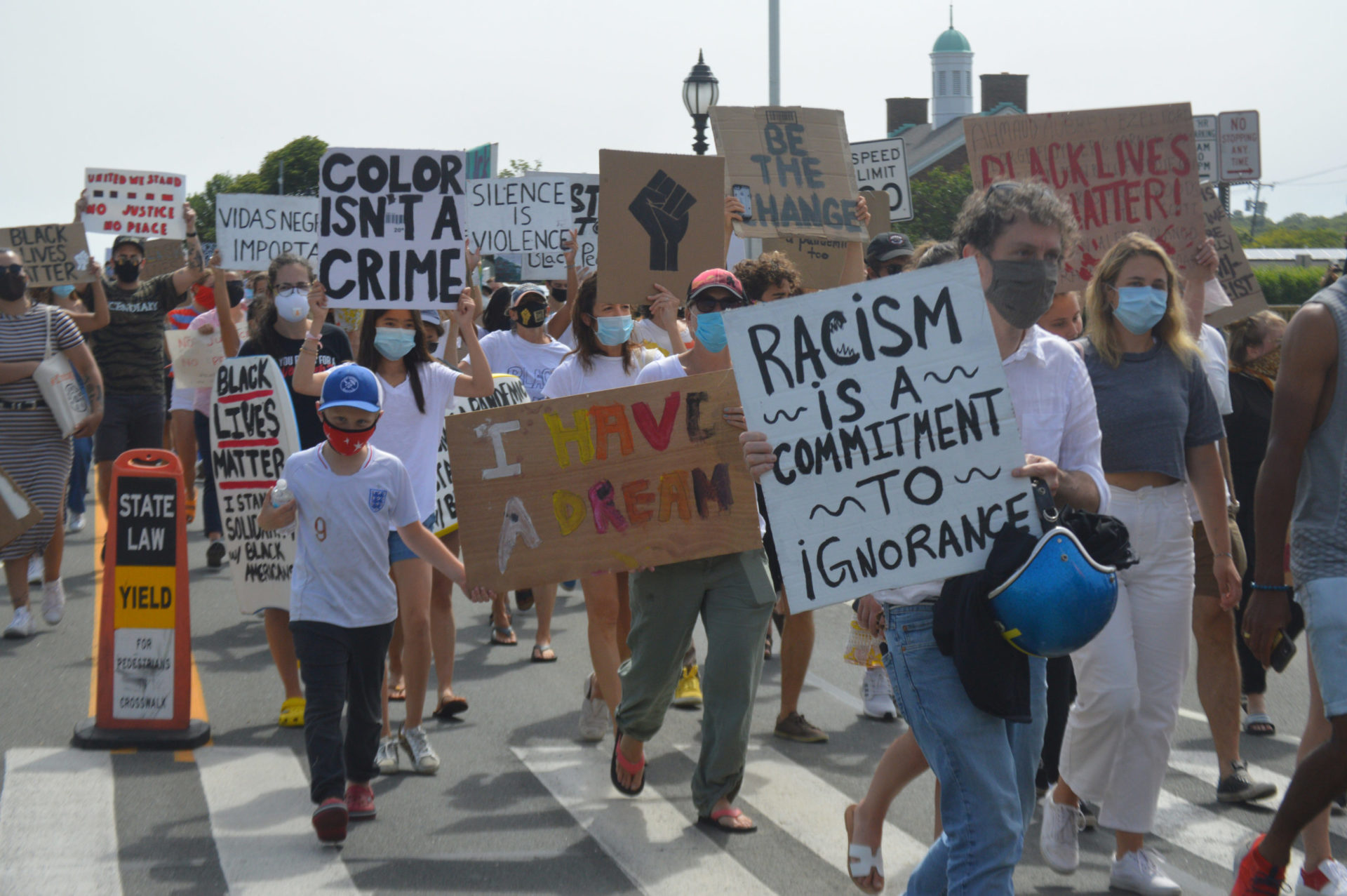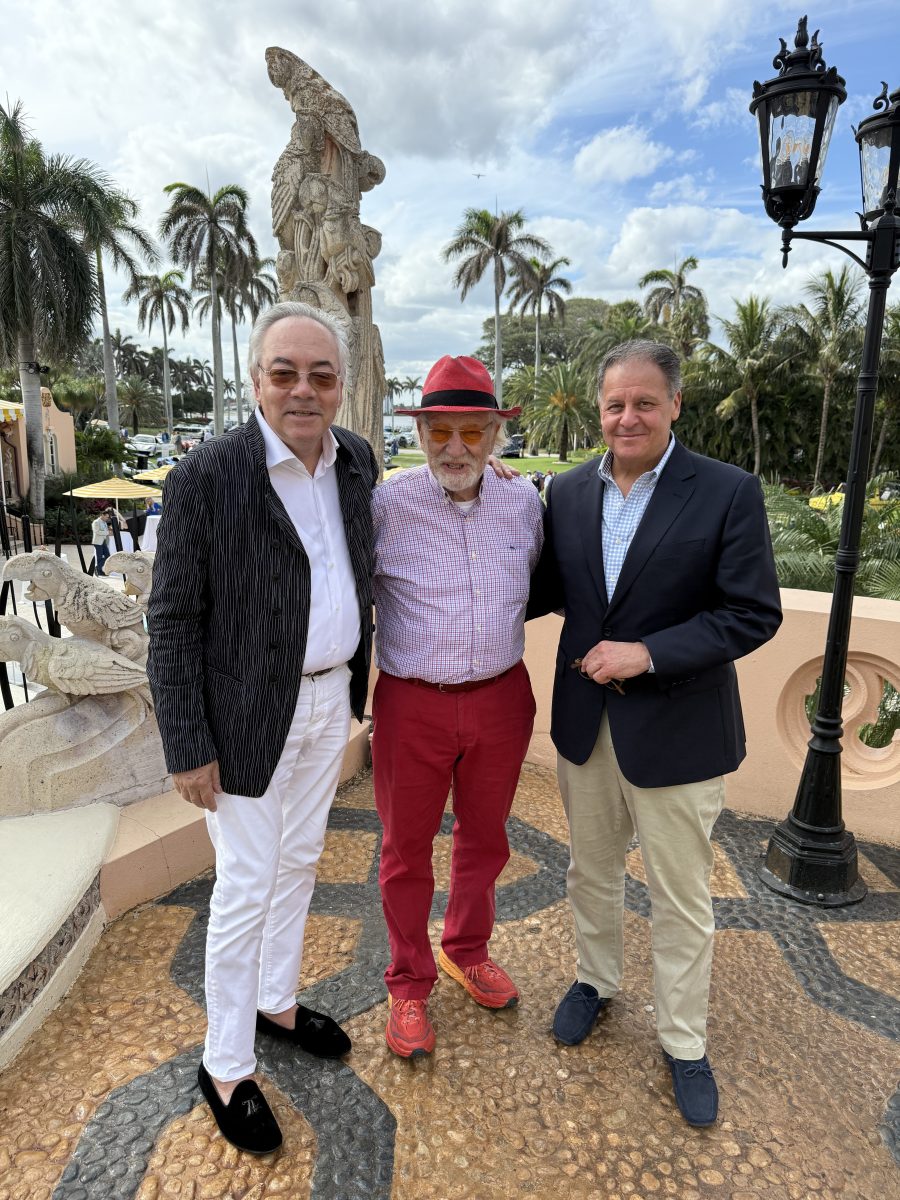Montauk Protestors Talk Police Brutality, Racial Slurs and Equal Rights
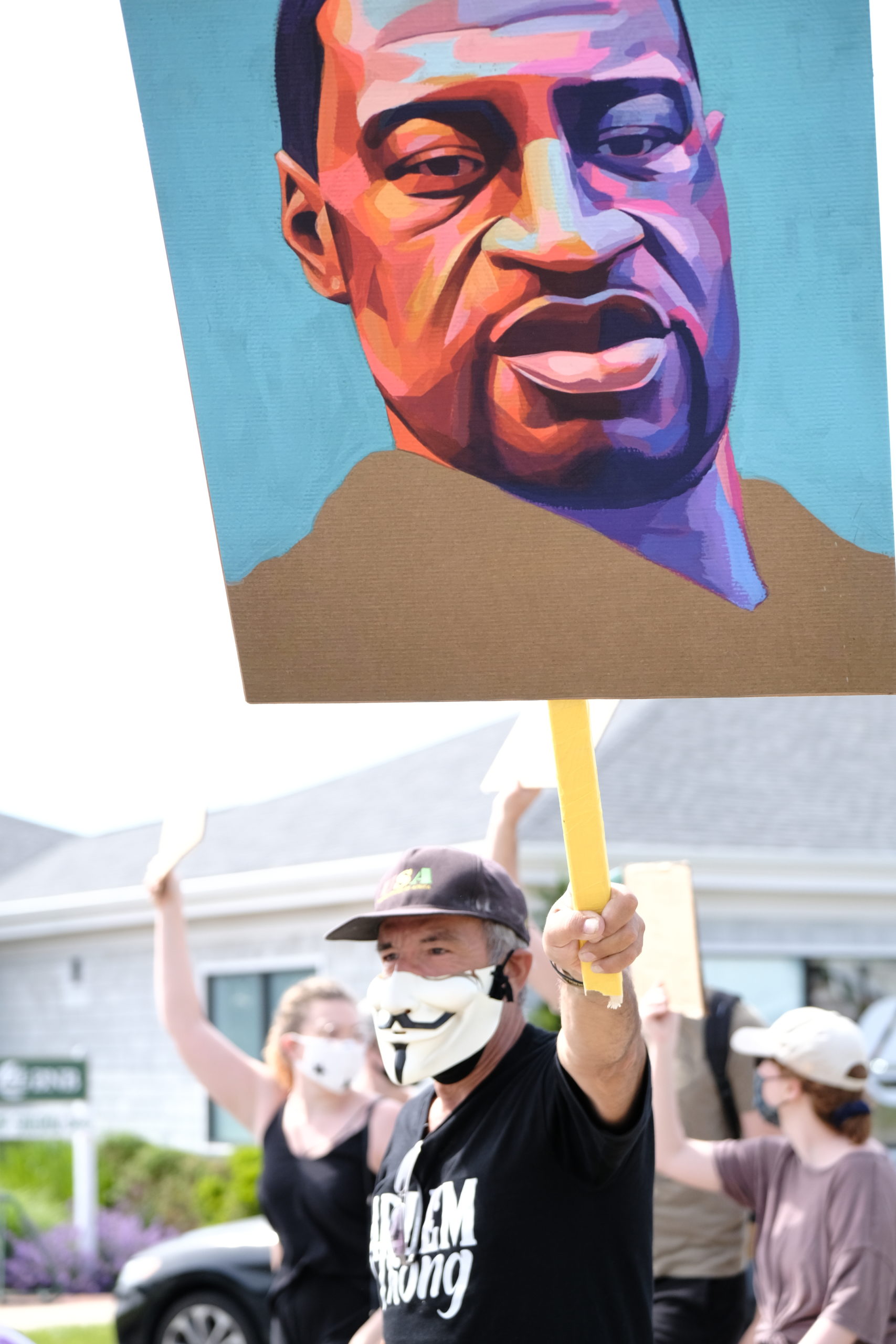
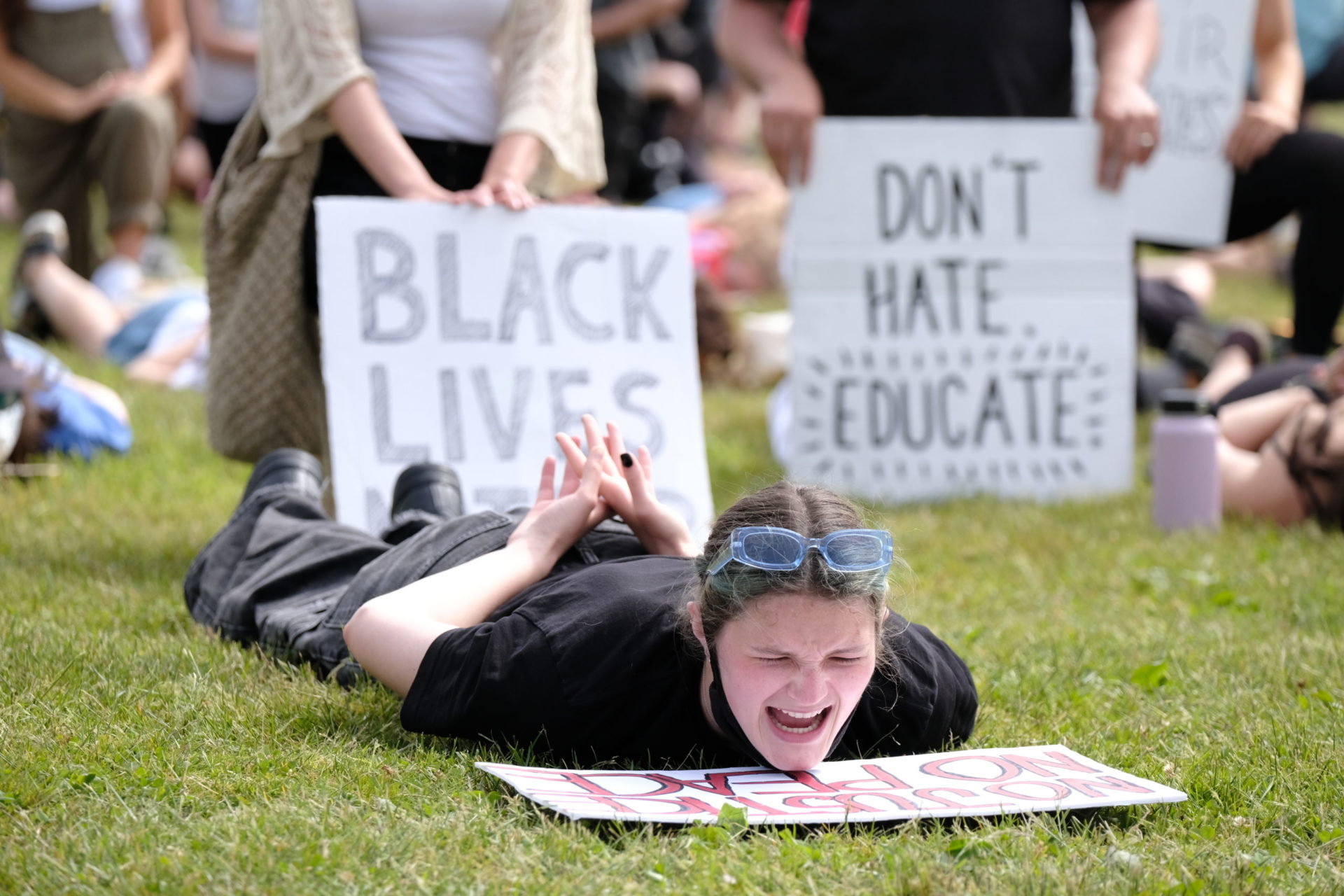
A peaceful demonstration in line with the Black Lives Matter movement was held in downtown Montauk Friday. The date was of significance: June 19 is known as Juneteenth Day, a holiday commemorating the end of slavery.
Protestors, who numbered more than 200, first gathered at the Zebrowski Memorial Soccer Field on Edgemere Street, a block north of Carl Fisher Plaza.
Organizers told the crowd that everyone involved must wear a mask, due to the COVID-19 pandemic.
Carrying homemade signs calling for the end to racism and police violence in the nation, the protestors gathered on the field, listening to several speakers, including a couple of the event organizers.
The crowd then marched down Edgemere to Carl Fisher Plaza, circling the northern half of the green twice, before entering the green itself. There they all went to the ground, some lying prone, face down, hands behind their backs as if handcuffed. Others took a knee, many raised a clenched fist.
They all remained in that position for 8 minutes and 46 seconds, the length of time a white police officer held down a Black defendant, George Floyd, by placing his knee on the back of Floyd’s neck, leading to his death.
East Hampton Town police, aided by several state police officers, had closed off Main Street from South Edison to South Embassy Streets to vehicles, and there was no foot traffic in the usually crowded area around Carl Fisher Plaza.
A sole heckler stood on Edgemere Street shouting pro-Trump slogans at the passing crowd as they marched towards the green.
One of the organizers, Ashley Peters of East Hampton, a member of the graduating class of East Hampton High School, spoke to the protestors before they began their march. “I was born in Brooklyn,” she said, adding she was bullied in elementary and middle schools. “‘Go back to your country.’ That is the one that really stood out to me. As I said previously, I was born in America. So, how can I go back to my country if I am already here? Then I realized it was my skin color.”
Peters said that when she was in seventh grade, she heard the news that a Black man, Michael Brown Jr., had been shot and killed in Ferguson, Mo. She said that she asked her history teacher to talk about the shooting the next day, “but she told me not to worry about it.”
She said that she has two younger brothers, ages 8 and 12. “They could die at the hands of a police officer, or a white supremacist while just walking down the street.”
Another of the organizers, Tanish Lindsay of Montauk, also addressed the crowd.

Before the rally, she talked briefly with Dan’s Independent Media. She said she spoke to workers in downtown Montauk to get the word out about the protest. She also had stood on the southwest corner of the green north of Main Street, waving a sign that said, “Black Lives Matter.” “I did get a lot of people telling us to ‘shut up and go the f*ck home.’ But we also got a lot of people honking in support. That drowned out the hate.”
The young female organizers of the event demanded marchers be respectful and peaceful. They also explored other issues regarding race in America beyond the relationship between police and the Black community.
Lindsay, when she addressed the crowd, focused for a moment on the use of a racial slur in common speech, by both Blacks and, increasingly, by whites. The word is frequently used in the music industry. “Please stop using the word,” she said. “It is a horrible word. You get nothing from using the word at all.”
Jack Perna, the Montauk School superintendent, also spoke the crowd. He said that he was in college in 1970 and had joined the protests taking place across the country at that time, against the war in Vietnam, and in support of women’s rights and civil rights for all Americans. “We won one,” he said, referring to the eventual end to the war, “but we didn’t quite make it there with the other two. You young women out there, don’t you give up the fight, ever. You make sure you are treated equally always. Anybody of color, of different sexual orientation, don’t you stop that fight, either, because everybody is entitled to equal rights.”
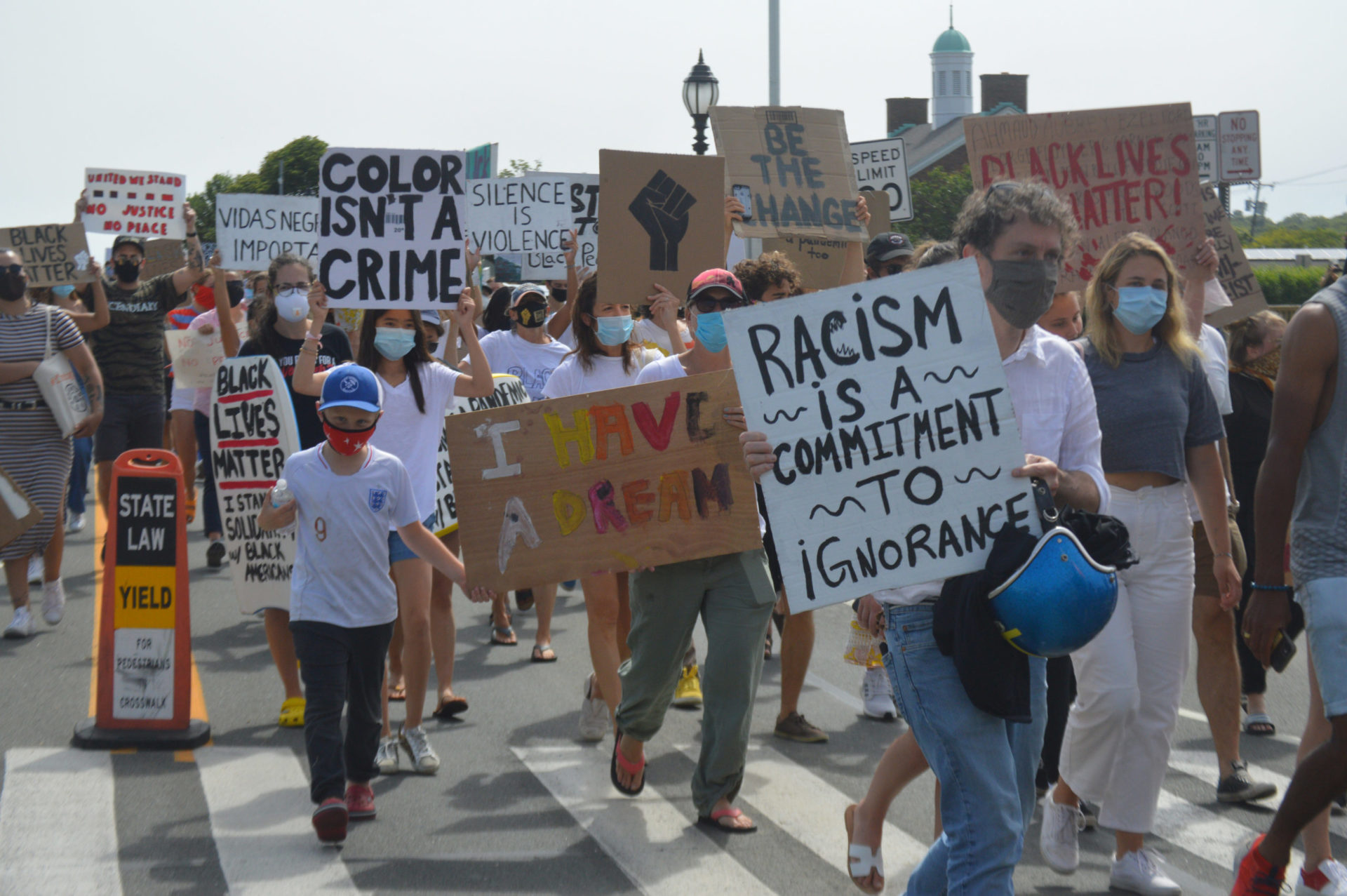
Another of the demonstration organizers was Ashley Peters’ sister, Lateshia Peters. Peters is a student at Claremont McKenna College in California. Before the demonstration began, she was asked, why Montauk?
She answered that Montauk has a reputation, “unfortunately, for its racism. It kind of goes unchecked. A lot of other organizers thought that it was really important to have a protest out here just as in the other towns. I think it will wake people up and get people to notice the cause we are fighting for here today.”
